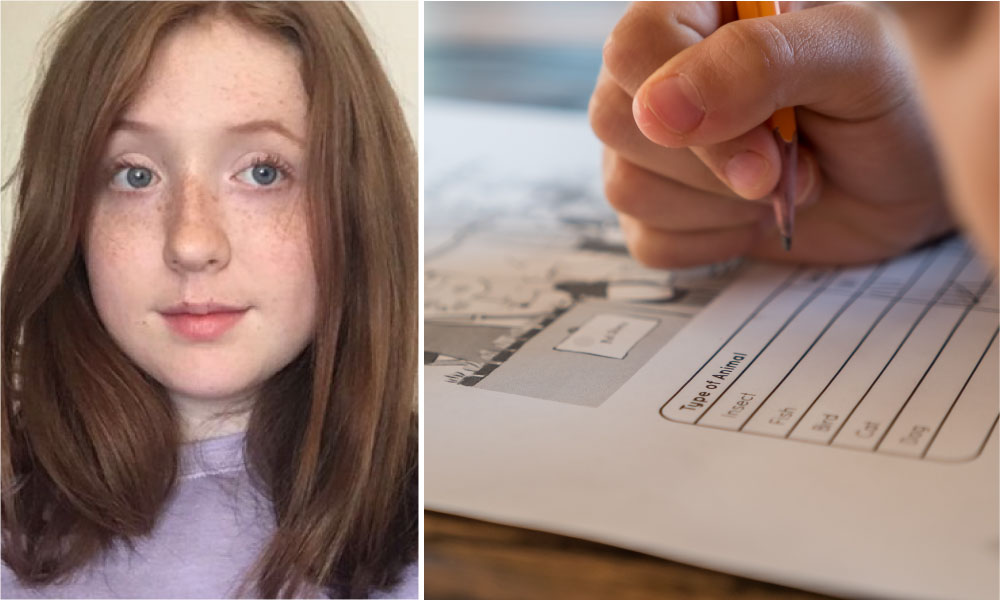When I think back to my days at primary school, I feel a mix of emotions. Happy memories that make me smile, but also memories tinged with hurt and the heavy weight of pressure. I wasn’t always the brightest child in school and being scored in exams was a huge burden. I never felt up to scratch compared to my smart friends.
Sadly, it doesn’t come as a surprise that British school children consider themselves to have some of the lowest wellbeing compared to other countries in Europe. The happiness rates of children in the UK have steadily declined since 2010, according to the 2020 Good Childhood report. This decline is credited to several factors, such as unhappiness with friendships and appearance, but importantly, many are unhappy with school.
A school should be a safe place for a child – welcoming, warm and nurturing. However, one in eight UK school children felt unhappy in 2019, with some suggesting bullying and not feeling safe as a cause.
Many believe that UK primary schools have become a toxic environment. As the daughter of a teacher and a tutor myself, I frequently see worried, upset children. Kids who worry when they get ‘only’ 90% in an exam. Kids who are afraid to try and read an unfamiliar word aloud during English lessons at school.
So many children have developed a fear of failure.
Evie Craggs
Kids who obsess over a mistake and are afraid to just try. So many children have developed a fear of failure. Instead of learning to make mistakes and persevering, children are forced into performance-focused contexts, where their score matters more than their effort or improvement.
Examinations and assessments are constant in primary school. From Year 1 to Year 6, children face five government-mandated exams. With a phonics assessment in Year 1, SATs exams in Year 2 and Year 6, and a multiplication exam in Year 4, there are only three years of primary school where there is no standardised external exam.
These children are aged from five to 12, one of the most crucial stages of their development, yet are being placed under insurmountable pressure to do well. This isn’t the nurturing environment that children need to flourish. It’s stifling. This is why it is so worrying that the government are introducing yet another standardised external exam, this time for children in reception.

Many children have developed a fear of failure. Credit: Pexels
There is a danger that [children] will then label themselves as good or bad learners. There are strong grounds here for parents to be concerned.
Dr Guy Roberts-Holmes, lead education Researcher at University College London.
The Reception Baseline test (RBT) was due to be introduced this September, yet due to coronavirus has been postponed to 2021, and schools encouraged to partake in the exam on a voluntary basis. The exam is 20 minutes long and done alone with the teacher. The test is a computer-based assessment done within the first six weeks of primary school, in the middle of the crucial settling-in period. It has been widely criticised as harmful to children.
“Contrary to claims that children don’t know they’re being tested, we found that children are well aware that they are taking a scripted computer test, and that they have a sense of whether they’ve performed well or badly,” said Dr Guy Roberts-Holmes, lead education Researcher at University College London.
“There is a danger that they will then label themselves as good or bad learners. There are strong grounds here for parents to be concerned.”
This is what happened to me. When I failed my maths SATs in Year 6, I believed that I was awful at it. For years I avoided the subject at all costs. Years later, and with a Grade 8 (A*) in my maths GCSE, I still struggle to admit that I might be good at maths. I’m worried the children I teach will feel like failures too.
A 2018 poll found that almost 50% of parents of seven to 14-year-olds felt their children were anxious about taking SATs exams. The campaign group More Than A Score, who conducted the research, has also found that 83% of headteachers it surveyed believe SATs have a negative impact on children’s wellbeing, while 73% of parents believe formal tests under exam conditions put too much pressure on their young children.
One anonymous headteacher told researcher Dr Alice Bradbury in her 2019 report on SATs-related anxiety: “In an ideal world I would not want to ever put a child through this.”

Seventy three per cent of parents believe tests such as SATs have a negative impact. Credit: Pexels
The mental health impacts of this culture of performance, labelling and examinations on children could be seen as a violation of their human rights. The United Nations Convention of Children’s Rights (UNCRC) clearly states: “Every child has the right to the best possible health”. How can we claim to uphold this right when children are being placed under this pressure? Or when one in ten schoolchildren have a diagnosable mental health condition?
We desperately need to reflect on how we are treating children in schools. Schools have become so focused on English and maths performance that they forget to nurture and create well-rounded students who will grow into well-rounded citizens.
A better balance needs to be achieved between performance measurement and play, and between social learning and kindness. We need to make sure we are meeting the children’s right to health and actually listen to the experts who are saying ‘this is not okay!’
Each child is unique. Future artists, musicians and computer programmers are sitting in schools feeling rubbish at English and maths, and thus feeling like failures. We seriously need to rethink education as whole and start supporting children.
The views expressed in this article are those of the author and do not necessarily reflect the views of EachOther.
About ‘The Inspired Source’ Series
This pilot series is part of our work to amplify the voices of aspiring writers that are underrepresented in the media and marginalised by society. Each piece examines a human rights issue the author or their community is affected by and preferably have a position on how we might begin to address it. This is a brand new series, so we are likely to adapt and refine it as things progress. Find out more about the series and how to send us a pitch on this page.






